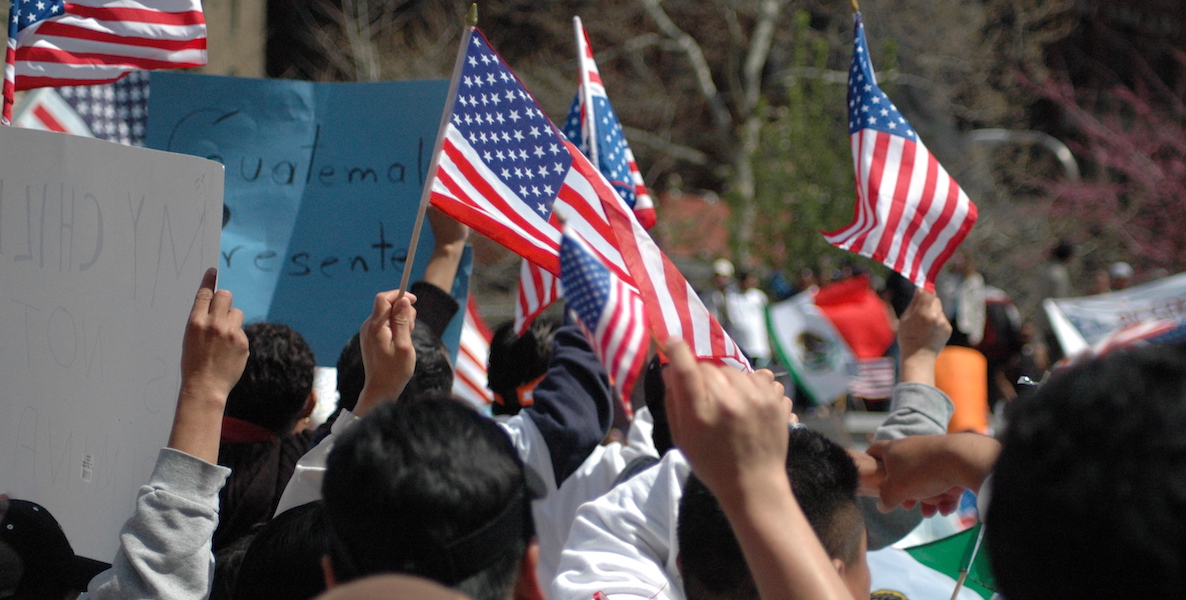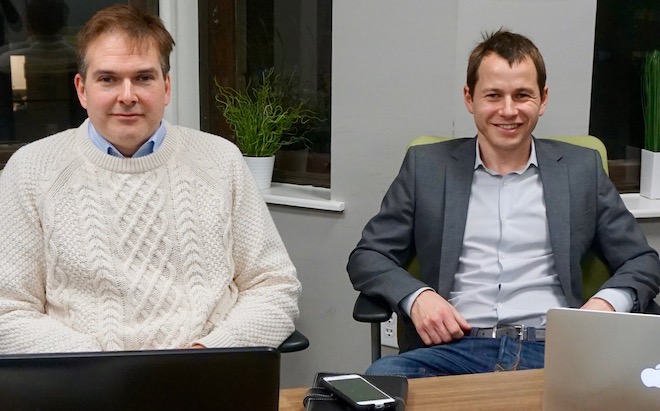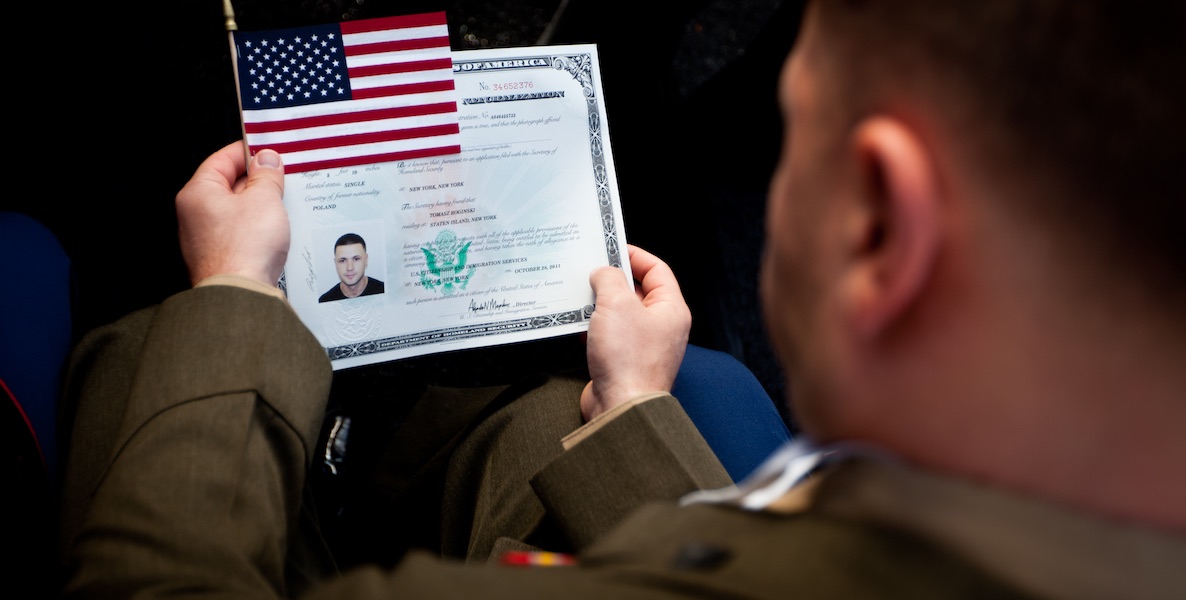It’s a nerve-wracking time to be applying for permanent legal status in the United States. From the infamous Muslim ban in February 2017 to the Trump administration’s ongoing attempts to rescind DACA (Deferred Action for Childhood Arrivals) to the amalgam of daily legislative changes, news in recent years has offered little good news for many people trying to relocate—or remain—in the U.S.
And as many will attest, sometimes the most challenging aspect is the daunting paperwork, and often unmanageable legal costs, which can be as high as $300 an hour.
That’s why, in 2016, two local lawyers, James Pittman and Jeremy Peskin, created Borderwise, a powerful online interface that makes it easier and cheaper to apply for a Green Card or naturalization. As The Citizen first chronicled in 2017, Borderwise puts all the questions, forms and jargon of applying for permanent legal status into easy-to-use software, complete with helpful examples and definitions. After an applicant fills out the forms, they are reviewed by an experienced immigration attorney for a flat fee of $500.
“Essentially we built software that streamlines the immigration process, and then we try and get that in the hands of as many individuals as possible,” says Peskin. “Permanent resident applicants, immigration attorneys, immigrant workers, and student visa applicants.”
Since its founding, over 80,000 immigration forms have been prepared using Borderwise. The company is effectively transforming the legal process for immigrants; it’s been likened to TurboTax, but with much higher stakes.
As an immigrant from Canada, Peskin is no stranger to the difficulties of the application process. After getting his J.D. at Penn, he struggled to figure out the bureaucratic maze of U.S. immigration in order to get his green card. Even as someone who had worked in corporate law firms, he was perplexed. Eventually he found Pittman, an immigration lawyer, and together they founded Borderwise in February, 2016.
Since its founding, over 80,000 immigration forms have been prepared using Borderwise. The company is effectively transforming the legal process for immigrants; it’s been likened to TurboTax, but with much higher stakes.
Peskin says that one of Borderwise’s aims is to help the vulnerable, so in reaction to President Trump’s 2017 travel ban, they decided to charge just $1 for any immigrant family that made under $30,000 a year. After the September 2017 announcement by Attorney General Jeff Sessions that DACA was being phased out, they changed their tactic: “We said any Dreamer, with any income, regardless of what they earn, can pay whatever is affordable.”
![]()
Paying your way to citizenship, or even a simple work visa, can be expensive. An application costs between $340 and $600, which doesn’t even account for legal fees that can rack up into the thousands. For non-Dreamers, Borderwise caps their usual service rate at $500 for an experienced lawyer to fully review the application, schedule a consultation and help the applicant work through their paperwork.
Despite these low rates, Peskin says Borderwise has been profitable since last spring and hasn’t had to raise capital beyond their pre-seed round. Peskin says that many who benefit from low-cost programs spread the word among their communities. The vast majority of users can afford and pay the standard fee, allowing for those in need to benefit.
An application costs between $340 and $600, which doesn’t even account for legal fees that can rack up into the thousands. For non-Dreamers, Borderwise caps their usual service rate at $500 for an experienced lawyer to fully review the application, schedule a consultation, and help the applicant work through their paperwork.
It’s only been couple of years, but Borderwise is making its mark. Technical.ly named it the number 2 top startup in Philly in 2018 and Peskin has found people recommending Borderwise to one another on online forums. “It’s an amazing feeling to be able to help someone who desperately needs status in the U.S. get that status,” he says.
![]()
Most of the people Peskin and Pittman have worked with are Dreamers, meaning they came to the U.S. before their 16th birthday. “A person who came through no choice of their own but arrived between six and twelve, that seems to be a common pattern,” describes Peskin. “People were brought here as children, they do well in school, they graduate from high school, they find a job, they fall in love they get married and then they want to legalize their status.”
Of course, there are many factors that could keep a candidate from being eligible for American citizenship, including criminal offenses or not having family ties in the U.S. While Borderwise has managed to help many prospective citizens, Pittman acknowledges that they can’t help everyone: “That’s a common situation when you’re an immigration lawyer. All you can do is set realistic expectations for the client with compassion and try to help.”
Above all, Pittman urges Dreamers to keep up with the news. “The situation is in flux. It’s unclear what the ultimate ruling will be, but the next two years or so should bring clarity to the situation.”
Borderwise founders James Pittman and Jeremy Peskin








